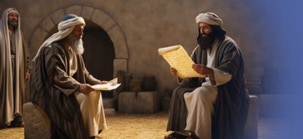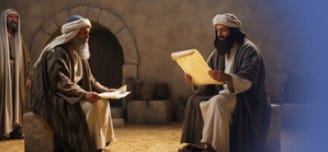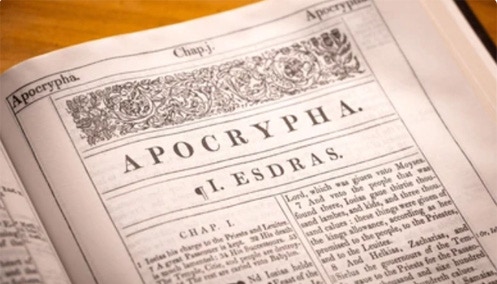


Common Objections
Common Objections
Catholic Outlook
Catholic Outlook

Catholic Outlook
Common Objections
Common Objections
__________ Recent Additions __________
Catholic Outlook
Catholic Outlook
__________ The “Apocrypha” __________
“Many of the great Fathers of the early Church spoke out against the Apocrypha.”
Gary Hoge

Well, some did, but that doesn’t mean much. Many of the great Fathers of the early church also spoke out against some of the New Testament books. Justin Martyr, Polycarp, Clement of Alexandria, Irenaeus, Origen, and Tertullian all rejected one or more of the canonical New Testament books. These same Fathers also accepted books we now reject. For example, Irenaeus, Origen, Tertullian, and Clement of Alexandria accepted The Shepherd as Scripture. Clement of Alexandria accepted The Didache, and Origen accepted The Acts of Paul. The canonical books of Hebrews, James, Jude, 2 Peter, and 3 John were called Antilegomena (from Greek ἀντιλεγόμενα, “spoken against”), and were not finally accepted until the end of the fourth century.
Also, although it’s true that some of the early Christians rejected the deuterocanonical books, most of them did not. According to the Protestant International Bible Commentary:
Polycarp, Barnabas, Irenaeus, Clement of Alexandria, Tertullian, Cyprian, Origen – Greek and Latin Fathers alike – quote both classes of books, those of the Hebrew canon and the Apocrypha, without distinction. Augustine (A.D. 354-430) in his City of God (18.42-43) argued for equal and identical divine inspiration for both the Jewish canon and the Christian canon.1
This is confirmed by Protestant patristics scholar J.N.D. Kelley:
In the first two centuries . . . the Church seems to have accepted all, or most of, these additional books as inspired and to have treated them without question as Scripture. Quotations from Wisdom, for example, occur in 1 Clement and Barnabas . . . Polycarp cites Tobit, and the Didache [cites] Ecclesiasticus. Irenaeus refers to Wisdom, the History of Susannah, Bel and the Dragon, and Baruch. The use made of the Apocrypha by Tertullian, Hippolytus, Cyprian and Clement of Alexandria is too frequent for detailed references to be necessary.2
The fact that there was prolonged controversy over some of the biblical books (in both testaments) certainly undermines John Calvin’s notion that Scripture is “self-authenticating,” but it does not weigh against the inspiration of the deuterocanonical books any more than it weighs against the other contested books that were eventually canonized.
__________
1 Gerald F. Hawthorne, “Canon and Apocrypha of the Old Testament,” International Bible Commentary, ed. F.F. Bruce, (Grand Rapids, MI: Zondervan Publishing House, 1986), 35.
2 J.N.D. Kelly, Early Christian Doctrine, (New York: Harper & Row, 1960), 53-4.
Copyright © 2024 Catholicoutlook.me
MENU